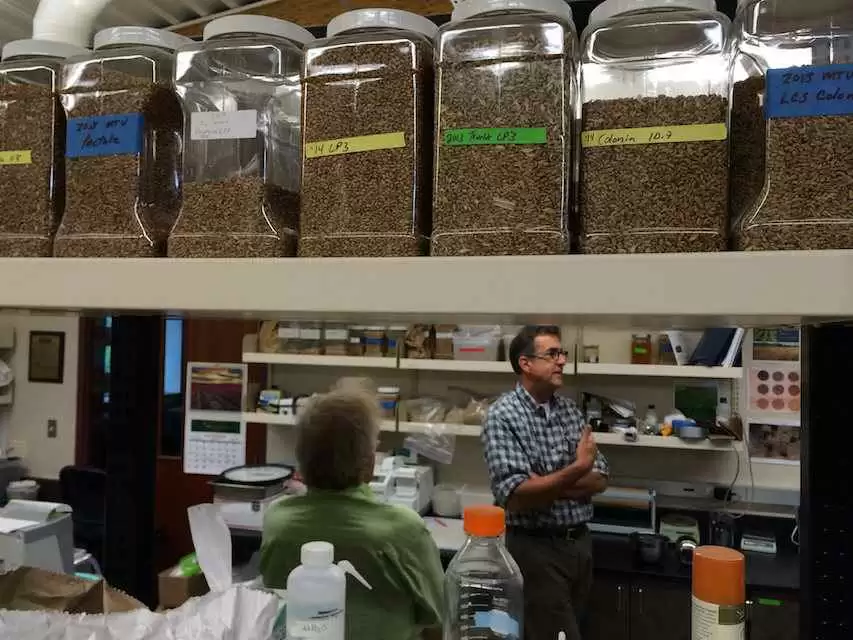
Celiac.com 12/10/2018 - More and more people are eating gluten-free for non-medical reasons. These days, people with celiac disease make up a small percentage of overall gluten-free food sales. However, the effects of eliminating or reducing wheat, barley and rye ingredients from the diets of in healthy adults have not been well studied. A team of researchers recently set out to assess the effects of a gluten-free diet in healthy adults.
To make their assessment, the researchers conducted a randomized, controlled, cross-over trial of 60 middle-aged Danish adults with no known diseases. The trial included two 8-week assessments comparing a low-gluten diet of 2 grams of gluten per day, and a high-gluten diet of 18 grams of gluten per day, separated by a washout period of at least six weeks with habitual diet including 12 grams of gluten per day.
Celiac.com Sponsor (A12):
Compared with a high-gluten diet, the data show that a low-gluten diet triggers slight changes in the intestinal microbiome, increases food and drink intake and postprandial hydrogen exhalation, and reduces self-reported bloating. The team’s data indicate that results of a low-gluten diet in non-celiac adults are likely triggered by qualitative changes in dietary fiber.
Studies like this are important for understanding the effects of a gluten-free diet in both celiacs and non-celiacs alike. Better understanding of a gluten-free diet will help doctors, celiac patients, and healthy individuals to make better, more informed dietary decisions.
Source:
The research team included Lea B. S. Hansen, Henrik M. Roager, Nadja B. Søndertoft, Rikke J. Gøbel, Mette Kristensen, Mireia Vallès-Colomer, Sara Vieira-Silva, Sabine Ibrügger, Mads V. Lind, Rasmus B. Mærkedahl, Martin I. Bahl, Mia L. Madsen, Jesper Havelund, Gwen Falony, Inge Tetens, Trine Nielsen, Kristine H. Allin, Henrik L. Frandsen, Bolette Hartmann, Jens Juul Holst, Morten H. Sparholt, Jesper Holck, Andreas Blennow, Janne Marie Moll, Anne S. Meyer, Camilla Hoppe, Jørgen H. Poulsen, Vera Carvalho, Domenico Sagnelli, Marlene D. Dalgaard, Anders F. Christensen, Magnus Christian Lydolph, Alastair B. Ross, Silas Villas-Bôas, Susanne Brix, Thomas Sicheritz-Pontén, Karsten Buschard, Allan Linneberg, Jüri J. Rumessen, Claus T. Ekstrøm, Christian Ritz, Karsten Kristiansen, H. Bjørn Nielsen, Henrik Vestergaard, Nils J. Færgeman, Jeroen Raes, Hanne Frøkiær, Torben Hansen, Lotte Lauritzen, Ramneek Gupta, Tine Rask Licht and Oluf Pedersen.
They are variously affiliated with the National Food Institute; the Department of Biotechnology and Biomedicine, Technical University of Denmark; the Department of Bio and Health Informatics; the Department of Chemical and Biochemical Engineering at the Technical University of Denmark in Lyngby, Denmark; the Department of Plant and Environmental Sciences; the Department of Nutrition, Exercise and Sports; the Department of Nutrition, Exercise and Sports; and the Department of Veterinary Disease Biology, Faculty of Science, University of Copenhagen in Frederiksberg, Denmark; the Department of Biochemistry and Molecular Biology, University of Southern Denmark, Odense, Denmark; the Department of Clinical Biochemistry, Copenhagen University Hospital Hvidovre in Hvidovre, Denmark; the Department of Radiology, Bispebjerg Hospital in Copenhagen, Denmark; the Department of Autoimmunology & Biomarkers, Statens Serum Institut in Copenhagen, Denmark; the Department of Biology and Biological Engineering, Chalmers University of Technology in Gothenburg, Sweden; the School of Biological Sciences, The University of Auckland in Auckland, New Zealand; the Bartholin Institute, Rigshospitalet in Copenhagen, Denmark; the Research Centre for Prevention and Health, The Capital Region of Denmark in Frederiksberg, Denmark; the Research Unit and Department of Gastroenterology, Herlev and Gentofte Hospital, the Capital Region of Denmark in Herlev, Denmark; with Clinical-Microbiomics A/S in Copenhagen, Denmark; the Department of Microbiology and Immunology, KU Leuven–University of Leuven, Rega Institute; and VIB, Center for Microbiology in Leuven, Belgium; with Biostatistics, Department of Public Health, University of Copenhagen in Copenhagen, Denmark; the Laboratory of Genomics and Molecular Biomedicine, Department of Biology; the Novo Nordisk Foundation Center for Basic Metabolic Research; the Department of Radiology, Bispebjerg Hospital, Copenhagen, Denmark; and the Department of Biomedical Sciences; and the department of Biostatistics at the Department of Public Health at the University of Copenhagen, Copenhagen, Denmark.








Recommended Comments
There are no comments to display.
Create an account or sign in to comment
You need to be a member in order to leave a comment
Create an account
Sign up for a new account in our community. It's easy!
Register a new accountSign in
Already have an account? Sign in here.
Sign In Now